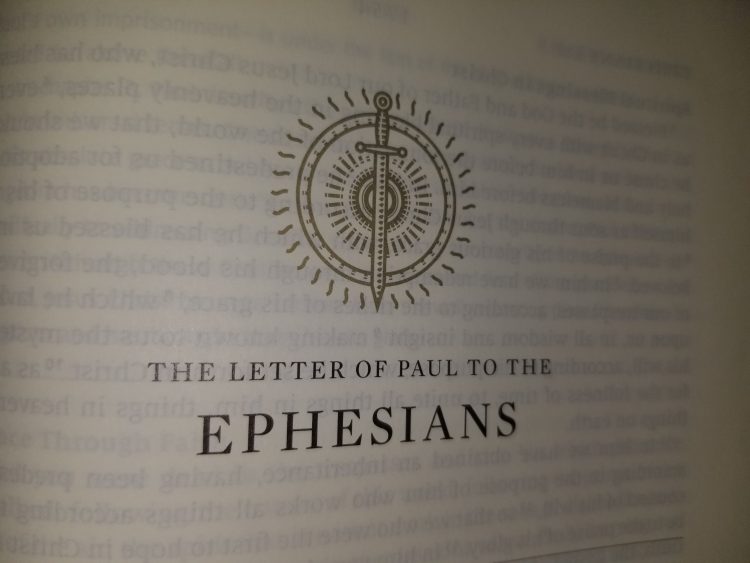⏱️ Estimated Reading Time: 10 min read
Ephesians 3:20-21, “Now to him who is able to do far more abundantly than all that we ask or think, according to the power at work within us, to him be glory in the church and in Christ Jesus throughout all generations, forever and ever. Amen” (Ephesians 3:20-21).
Paul’s prayer in Ephesians 3:14-21 rises in four steps so that each step becomes the foundation of the next, and all of them drive us toward the glory of God. Step one is that Paul wants us to be strengthened with power by the Holy Spirit in our inner being. Step two is that Jesus Christ himself, the King of kings and Lord of lords, would dwell in our hearts through faith. Step three is that we would have eyes to see the enormity and the beauty of the being of God and that we would know the love of Christ that is beyond knowledge. Step four is that we would be filled with all the fullness of God, that we would commune with him deeply and perfectly and eternally—oh, what a glorious prayer!
The aim of Paul’s prayer for God’s people is that it will be like an anchor for them that is cast deep into the heart of God. For if the anchor of our lives is in the heart of God, our anchor will hold, come what may. It doesn’t matter how hard the winds blow, or how long the rain falls, or how high the waves crash over the bow of the ship of our lives—the anchor will hold and the ship of our lives will remain intact.
Friends, Paul wants us to live the kind of lives where we can lose everything we have—money, possessions, position, prestige, health, loved ones, anything—and still say from the bottom of our hearts, “In Christ, it is well with my soul.” Even though there may be pain in the offering and we may bear the marks of our suffering, Paul wants the cry of our hearts to be, “In Christ, it is well with my soul.”
In the 1870s Horatio Spafford was a successful Chicago lawyer and a close friend of evangelist Dwight Moody. Spafford had invested heavily in real estate, but the Chicago fire of 1871 wiped out all of his holdings. And to make matters worse, his son had died shortly before the disaster.
Needing a rest from their suffering, Spafford planned a trip to Europe in 1873 with his wife and four daughters, but some last-minute business caused him to delay his departure. He did send his wife and daughters on the S. S. Ville Du Havre as scheduled, promising to follow in a few days. On November 22, 1873, their ship was struck by another ship, and it sank in twelve minutes. Several days later the survivors landed at Cardiff, Wales, and Mrs. Spafford cabled her husband the brief message, “Saved alone.” All of his daughters had been lost.
When Horatio Spafford made the ocean crossing to meet his grieving wife, he sailed right near the place where his four daughters had sunk to the ocean depths. And there, in the midst of his sorrow, he wrote these unforgettable words:
When peace, like a river, attendeth my way,
When sorrows like sea billows roll,
Whatever my lot, Thou hast taught me to say,
It is well, it is well, with my soul.
Though Satan should buffet, though trials should come,
Let this blessed assurance control,
That Christ hath regarded my helpless estate,
And hath shed His own blood for my soul.
How does a man face what this man faced and then write a song like that, a song that has endured for over 150 years now? He does it by growing day by day in strength and power and knowledge of God, and more so, in communion with God. It’s possible to know truths about God and not to commune with God, but when a person moves from just knowing about God to communing with God in Christ, that person becomes immovable because Christ is immovable. He may suffer, he may mourn, he may endure agony—but in the end, the anchor of his life will hold in Christ.
So, let me ask you: in the real-life storms and trials of life, what will hold your soul? I promise you that superficial, Sunday-morning-only Christianity will not hold you. Acknowledging the being and goodness of Christ will not hold you. Only communion with God in Christ will hold you!
More that We Ask or Think?
With this in mind, Paul continues, “Now to him who is able to do far more abundantly than all that we ask or think, according to the power at work within us” (Ephesians 3:20). This statement is true because God is greater than we can possibly fathom. I love to ponder the images captured by the Hubble Telescope because whenever I do, I marvel at the enormity and complexity and beauty of what God has made. More so, I wonder at the magnitude and power and intelligence and glory of God. Friends, God is truly awesome, and we don’t have the capacity to grasp how great he is. But we can grasp enough to know that God can do anything he wants to do, so long as it accords with the nature of his being. So long as it conforms to his holiness and goodness.
So, then, what do we do when we are faced with a God so great as this who sometimes doesn’t seem to do beyond what we can ask or imagine? I’m sure that the Spafford imagined certain things they felt were better for their lives, like sparing the lives of their precious children, and yet God did not do that. So, what do we do when God seems to do less than we can ask or imagine? I can’t answer that question exhaustively, but here are four thoughts for you.
First, when God doesn’t do what we ask or imagine, we can still believe the Bible when it says that he is able to do more than we can ask or imagine. In other words, we can remind ourselves that the reason he didn’t do what we wanted him to do is not because he couldn’t but because he chose not to. Even when we don’t understand his wisdom, we can choose by his grace to believe.
Second, when God doesn’t do what we ask or imagine, we can still believe the Bible when it says that God is holy and good and gracious and merciful. In other words, we can encourage ourselves to trust in the character of God. When the snake of suffering bites, we can seek by God’s grace not to roll over and give into the venom of bitterness and anger toward God. Rather, we can encourage ourselves to trust in his character because it’s a constant, it’s a rock, and it will endure the tests of time and tragedy. The character of God is unflawed and unflappable and unchanging; even in the midst of difficulty and tragedy.
Third, when God doesn’t do what we ask or imagine, we can still believe the Bible when it says that God is wise. Friends, God knows what he’s doing, and he sees the end from the beginning. And because this is so, he sometimes allows things to come into our lives for reasons that are beyond our ability to understand.
Fourth, when God doesn’t do what we ask or imagine, we can still believe the Bible when it says that God can take what was meant for evil and turn it for great good. We can still believe that God will work all things together for the good of those who love him and are called according to his purpose. We can still believe that, in Christ, God is favorably disposed toward us, that he’s on our side, that he’s bringing all of his resources to bear for our good—in his time and in his way.
Friends, God can be trusted even amid great storms, but if you want the anchor of your life to hold, you must drive it deep into his being now through Christ. If you wait to anchor yourselves in God until the storm comes, it might be too late for you. But if you are truly in Christ, God will hold you despite your sloth and weakness in him. The time to sink your roots deep into Christ is before winds blow and the rains fall and the lightning strikes. The time to anchor the ship of your life to the being of God is before the waves come crashing over the bow.
God may be gracious to you, but please don’t presume on his grace. Don’t be like the ten virgins in Jesus’ parable who refused to prepare themselves for the feast, and then when it was time to enter into the feast they were locked out of it. Friends, don’t be like them! Rather, pursue God with all your heart, for if you will pursue God by the grace of God, one day you will understand what it means to have deep, authentic joy amid profound pain and sadness.
There are times in our lives when we just can’t smile, but as Christians, there is nonetheless a deep and abiding joy in us because we know that weeping may last for a moment, but joy comes in the morning. We know that our afflictions, when compared to the glorious things that God has in store for us in Christ, are just light and momentary. Our afflictions are light and momentary, but the glory of living with God and communing with God and being filled with all the fullness of God will be ours forever!
Glory be to God
Oh Friends, in Christ, we will know deep joy in the midst of every storm, and from that joy in God will rise up songs and shouts of praise to God and we will agree with Paul when he says in Ephesians 3:21, “Glory be to God in the church and in Christ throughout all generations forever and ever, Amen!” The cry of our souls will be, “Glory be to God, Glory be to God, Glory be to God! He put on me the garments of salvation, and he put on me the robe of the righteousness of Christ. He held me in all of my trials, and he humbled me in all of my triumphs.”
Indeed, this is the purpose for which we were created. This is the reason we were called and chosen and predestined and forgiven and made alive with Christ and raised up with Christ and seated with Christ in the heavenly places—it was not to make much of us. Rather, it was that our lives would be shot through with joy in God and overflow in the praise of the manifold excellencies of God as we’re filled with all the fullness of God in Christ.
In every season of life, let us join with Paul and pray, “Now to him who is able to do far more abundantly than all that we ask or think, according to the power at work within us, to him be glory in the church and in Christ Jesus throughout all generations, forever and ever. Amen” (Ephesians 3:20-21).




